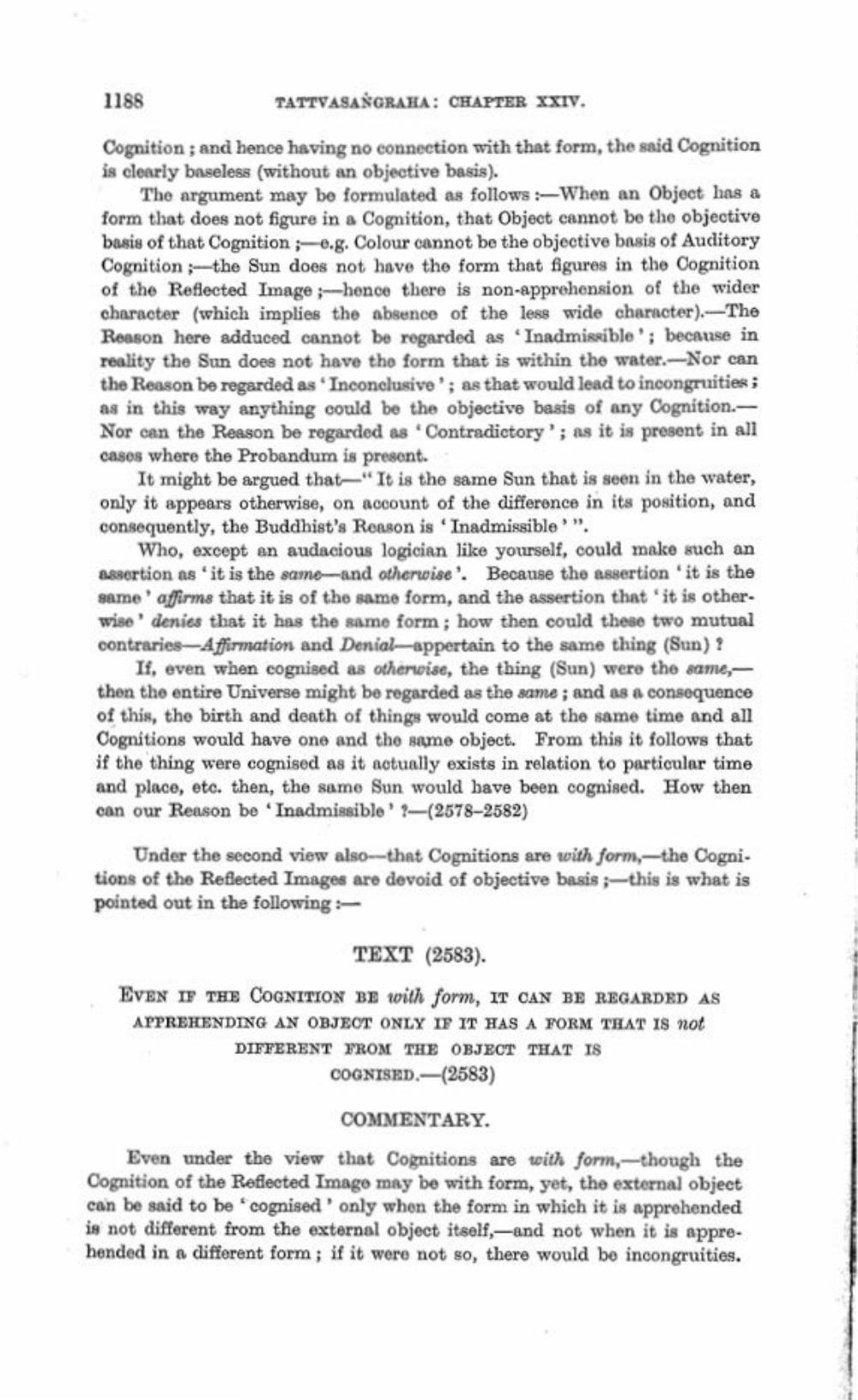________________
1188
TATTVASANGRAXA: CHAPTER XXIV.
Cognition; and hence having no connection with that form, the said Cognition is clearly baseless (without an objective basis).
The argument may be formulated as follows:-When an Object has a form that does not figure in a Cognition, that Object cannot be the objective basis of that Cognition ;-e.g. Colour cannot be the objective basis of Auditory Cognition the Sun does not have the form that figures in the Cognition of the Reflected Image - hence there is non-apprehension of the wider character (which implies the absence of the less wide character) --The Reason here adduced cannot be regarded as "Inadmissible'; because in reality the Sun does not have the form that is within the water.-Nor can the Reason be regarded as 'Inconclusive': as that would lead to incongruities; as in this way anything could be the objective basis of any Cognition.Nor can the Reason be regarded as 'Contradictory'; as it is present in all cases where the Probandum is present.
It might be argued that,"It is the same Sun that is seen in the water, only it appears otherwise, on account of the difference in its position, and consequently, the Buddhist's Reason is Inadmissible".
Who, except an audacious logician like yourself, could make such an assertion as it is the same and otherwise. Because the assertion it is the same' affirms that it is of the same form, and the assertion that it is otherwise' denies that it has the same form ; how then could these two mutual contraries-Affirmation and Denial-appertain to the same thing (Sun)?
If, even when cognised as otherwise, the thing (Sun) were the same, - then the entire Universe might be regarded as the same; and as a consequence of this, the birth and death of things would come at the same time and all Cognitions would have one and the same object. From this it follows that if the thing were cognised as it actually exists in relation to particular time and place, etc. then, the same Sun would have been cognised. How then can our Reason be 'Inadmissible' - (2578-2582)
Under the second view also--that Cognitions are with form,--the Cogni. tions of the Reflected Images are devoid of objective basis ;-this is what is pointed out in the following:
TEXT (2583).
EVEN IF THE COGNITION BE with form, IT CAN BE REGARDED AS APPREHENDING AN OBJECT ONLY IF IT HAS A FORM THAT IS not DIFFERENT FROM THE OBJECT THAT IS
COGNISHD.-(2583)
COMMENTARY.
Even under the view that Cognitions are with form, though the Cognition of the Reflected Image may be with form, yet, the external object can be said to be cognised only when the form in which it is apprehended is not different from the external object itself, -and not when it is apprehended in a different form; if it were not so, there would be incongruities.




